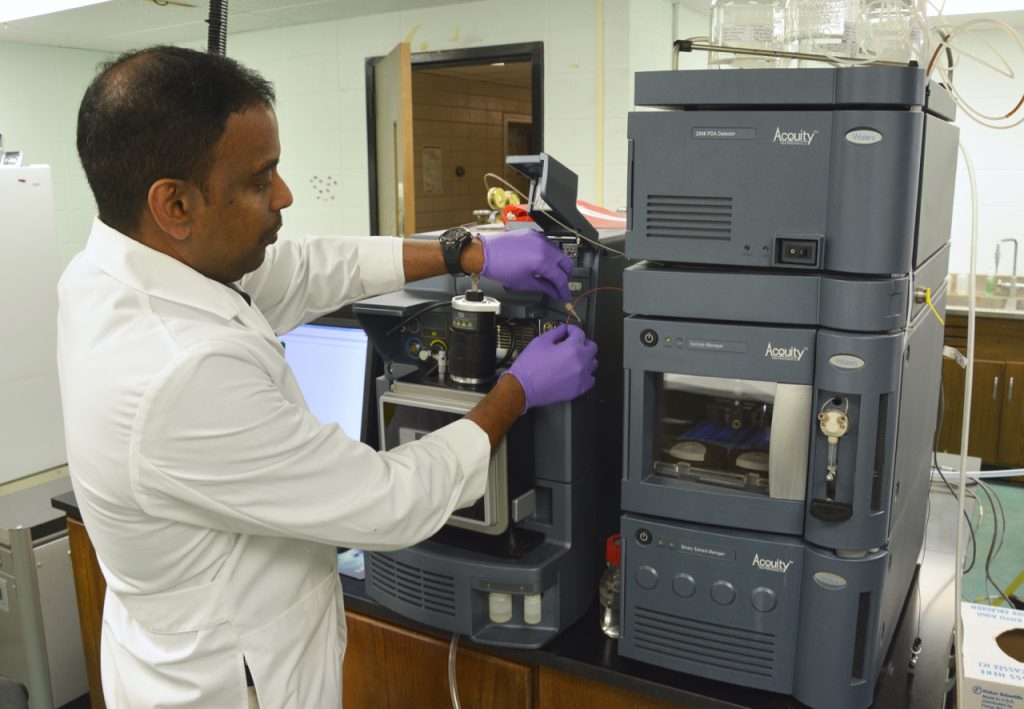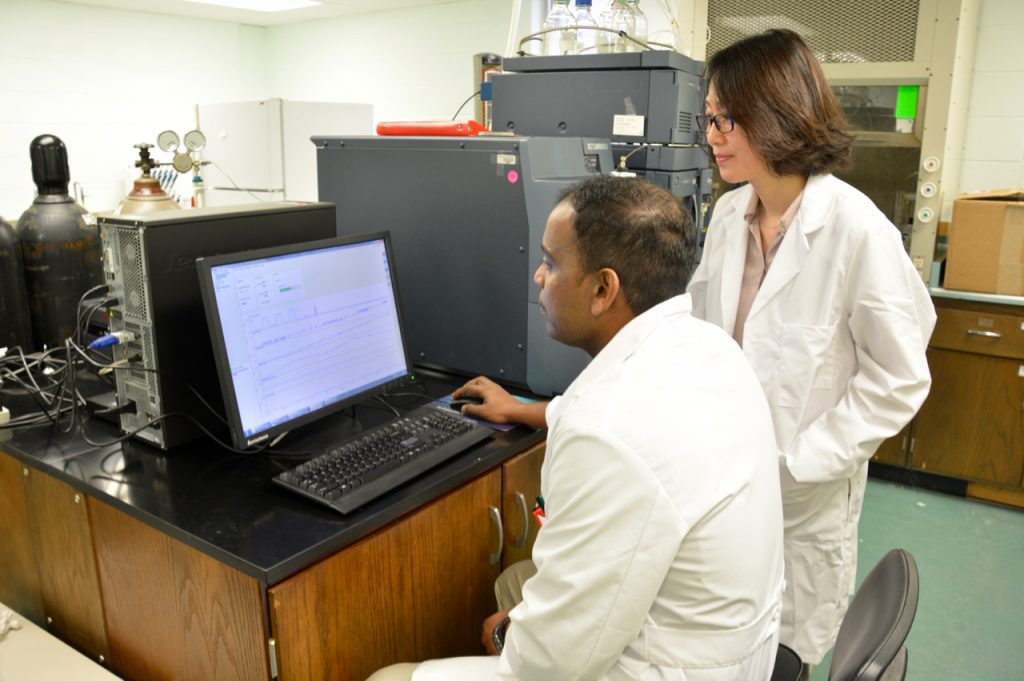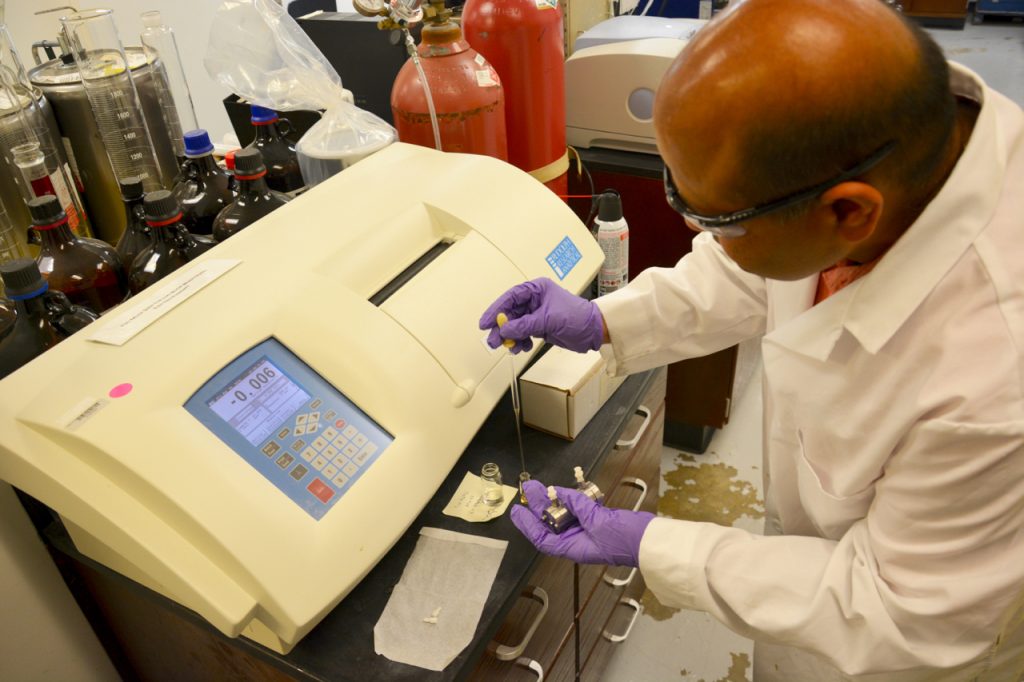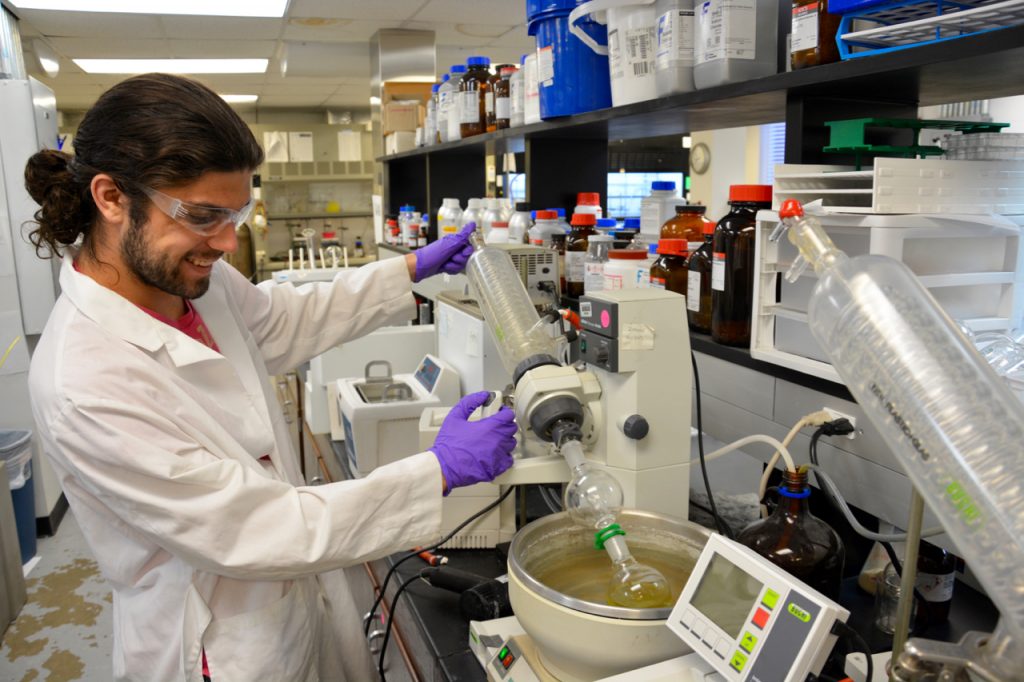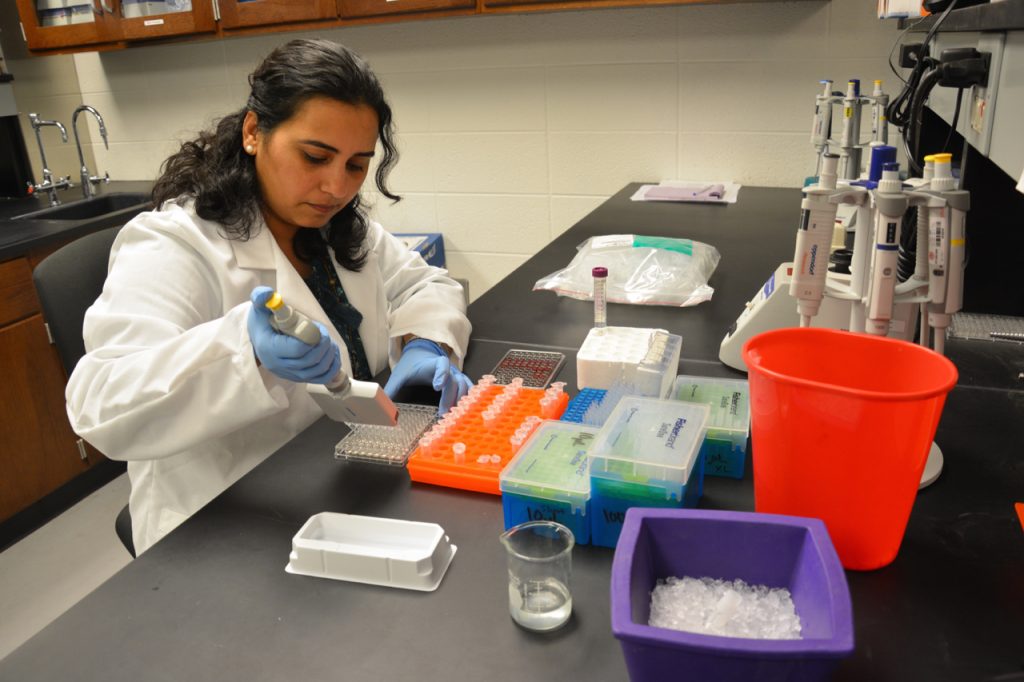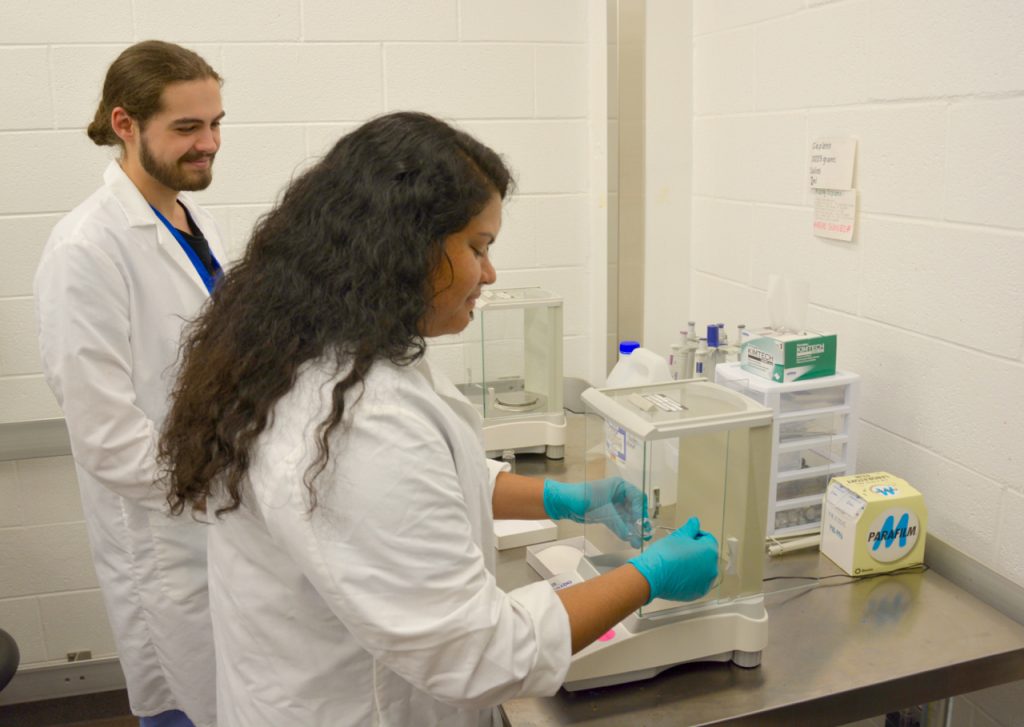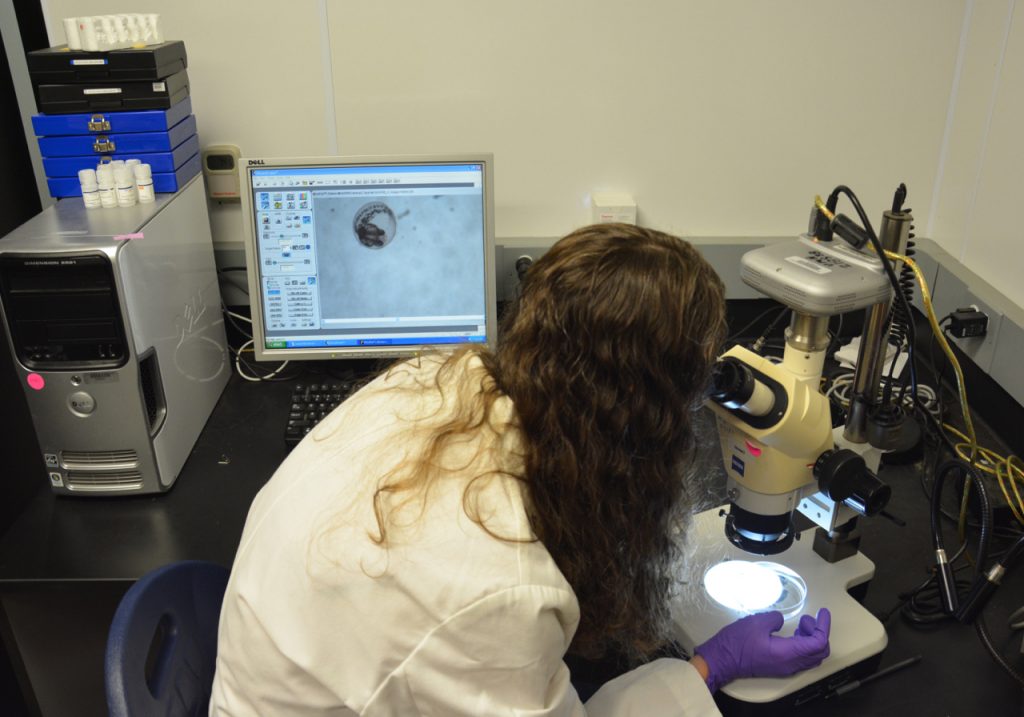Research Cores
Chemistry and Drug Metabolism Pharmacokinetics (DMPK) Core
The Chemistry/DMPK Research Core is designed to provide lead optimization, analytical/bioanalytical expertise, drug metabolism (DM), pharmacokinetics (PK) and pharmacodynamics (PD) expertise on natural products and related compounds that are determined by the CORE-NPN investigators to have significant biological activity in the In Vitro and In Vivo Pharmacology Cores. This may include semi-synthesis of lead natural products to generate data on structure-activity-relationships (SAR) and metabolism-activity-relationships (MAR) to optimize the drug candidates. For pure isolates where there is not enough material to conduct full pharmacological testing, the Chemistry/DMPK Core will synthesize larger quantities of the active components for in vitro and in vivo studies. In addition, the Core will make available the bulk-synthesis of compounds that have potential clinical usefulness. The Chemistry/DMPK Core will also have an advisory role for the CORE-NPN investigators that require expertise in the area of exploration of SAR and MAR, analytical method development and validation, chemical modifications to influence PK properties, and pharmaceutical and chemical influences on solubility and formulation, and PK/PD analysis.
Contact Core Director Dr. John Rimoldi at jrimoldi@olemiss.edu or 662-915-5119.
Neuropharmacology Core
The Neuropharmacology Core enables investigators to use in vitro and in vivo assays to serve as a guide in the isolation and identification of biological-active natural products and to evaluate compounds predicted to have activities in these systems through rational drug design. The in vitro assays are aimed to increase our understanding of the mechanisms of actions of natural products on the endocannabinoid system. This includes conducting assays for affinity to cannabinoid receptor type 1 and type 2 (CB1 and CB2) and the μ, δ, and ĸ opioid receptors (MOR, DOR, KOR). In addition to affinity assays, we offer multiple functional assays for each receptor. The Core also isolates primary neurons and/or astrocytes for assessment of neurotoxicity, neuroprotection, and neurite outgrowth changes in response to drug treatment. Additional support for molecular biology techniques including qPCR, Western blotting, and ELISA are available upon request.
The in vivo component of the Neuropharmacology Core currently provides the resources and technical support necessary for drug administration in animal models and analysis of many aspects of animal behavior in response to treatment. Zebrafish assays of developmental toxicity and anti-epileptic effects of drugs are available, and include both genetic and pharmacological induced seizures. Our rodent models (mice and rats) include assays of abuse potential, cannabinoid function (temperature, locomotion, pain, and catalepsy), ataxia, anti-nociception, anxiolytic, anti-depressant, allodynia, anti-migraine, and post-traumatic stress effects. Additionally, learning and memory as well as muscle strength can be assessed in both mice and rats. Together, we can develop protocols to best suit the needs of investigators when administering novel compounds to our various animal assays.
Neuropharmacology Core FAQ
Contact Core Director Dr. Jason Paris at parisj@olemiss.edu or 662-915-3096.
Pilot Project Program Core
The Center of Research Excellence in Natural Products Neuroscience (CORE-NPN) supports a formal mentoring program to promote the establishment of independent research programs for investigators. All investigators receive bridge funding ($50,000 per year for maximum two years) to support their research. The investigators are required to submit a competitive R01 grant application to NIH within two years of receiving support through this program.
